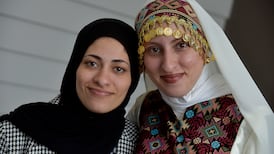NUI Galway has dropped its long-standing requirement that the president of the university must be fluent in Irish.
At a recent meeting of the college’s governing authority, Údarás na hOllscoile, a majority of members voted to change the recruitment criteria on the basis that it was limiting the pool of potential candidates.
However, a significant number of the authority’s members are understood to have argued forcefully for the retention of the requirement on the basis of the language’s special role in the university.
That commitment, they argued, was set out initially in the University College Galway Act dating back to the 1920s and in subsequent legislation which commits the college to taking a leadership role in responding to the needs of the Irish-speaking community.
The college is about the commence the recruitment process for a successor to its current president Dr Jim Browne.
Undertake test
Until now, short-listed candidates for president of the university were required to undertake a test by An Bord Gaeilge. On the successful completion of the Irish examination, candidates were invited to interview.
Some members of the governing body are understood to have argued this rule was unfairly ruling out talented international candidates at a time when colleges are under pressure to boost their global rankings.
A majority of members, however, said there should be a commitment on the part of a new president to understanding the importance of Irish to the university.
There was also discussion that a new president should be encouraged to learn the language, if their level of Irish was not of a high standard, according to sources.
Under the University College Galway (Amendment) Act 2006, the role of Irish in the college was given renewed recognition.
Its policy commits the university to respond in “an effective and realistic way, with the support of the relevant State agencies, to the totality of the needs – education, economic, developmental and cultural – of the Irish-speaking community as a living community, in the Gaeltacht and in the country at large”.











